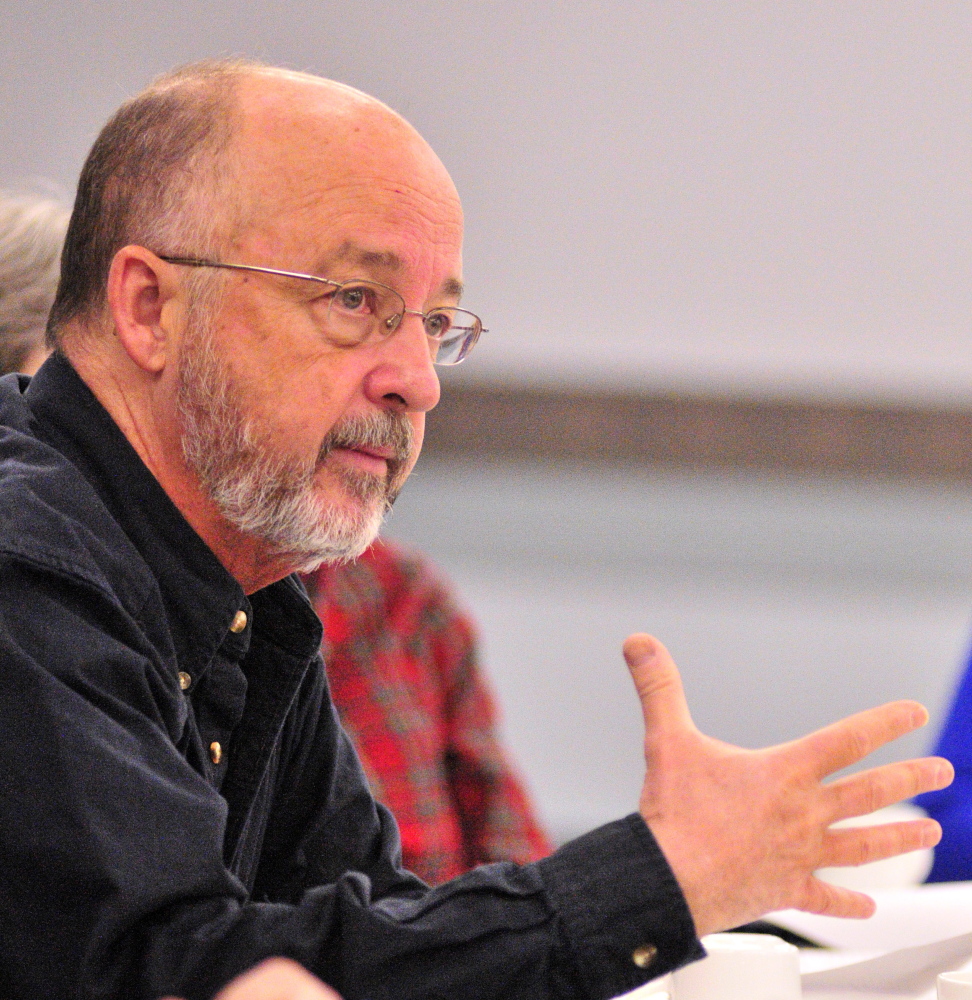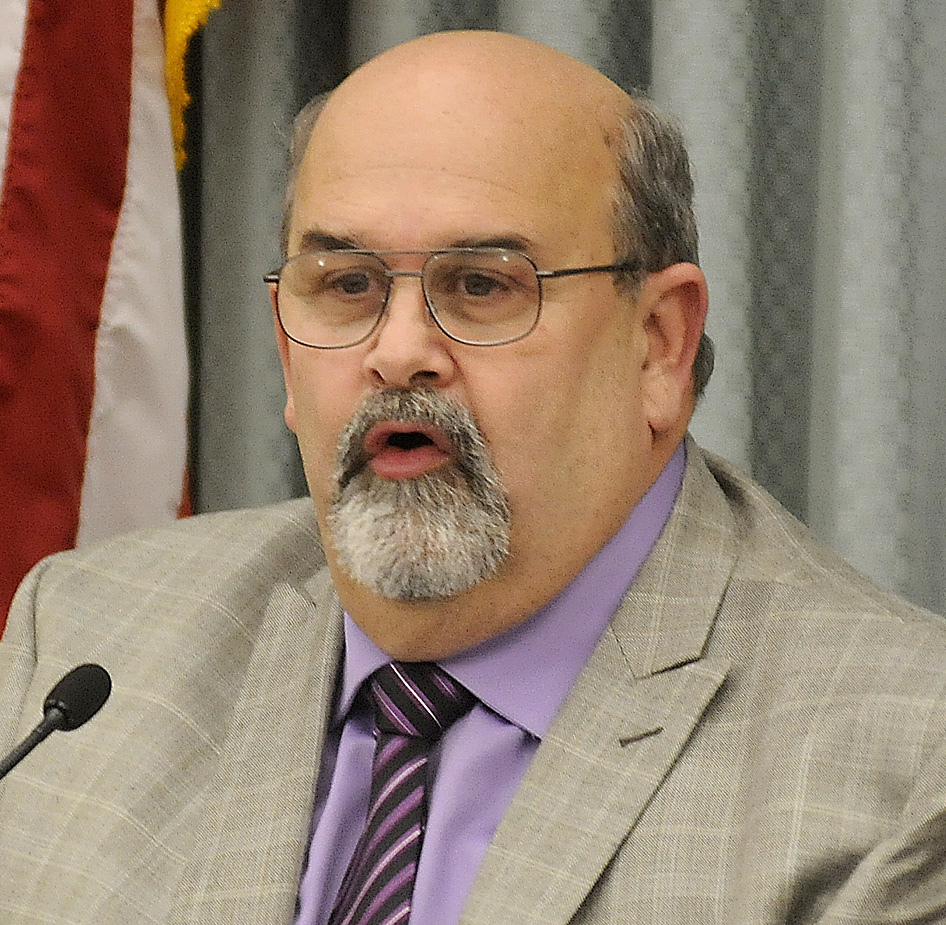AUGUSTA — The city manager’s proposed $59.7 million budget would increase the property tax rate by 5.23 percent.
The budget’s effect on local taxpayers, however, would vary considerably, partly because of changes in the state’s Homestead Exemption program that increased the amount of property valuation homeowners can take off the taxable value of their primary residences.
The owners of commercial properties, or any property not deemed a primary residence, would be hit by the full 5.23 percent tax increase required to fund the combined city and school budget that City Manager William Bridgeo turned over to city councilors this week.
But with the amount of taxable value homeowners are allowed to take off their homes increasing from $15,000 to $20,000 under the Homestead Exemption, the owners of some homes will see their property tax bills remain flat, or even decrease, if the budget is approved as proposed.
The owner of a $115,000 home, the average property value in Augusta, would get a property tax bill of $1,978.85, 15 cents lower than the one they got this year, a 0.01 percent decrease.
On the low end of property values, the owner of a home valued at only $25,000, such as some mobile homes on leased lots, would get a tax bill of $104.15, a $93.75 decrease, or 47 percent.
On the opposite end of property values, the owner of a $250,000 home in Augusta would get a tax bill of $4,790.90, a $140.25, or 3.02 percent, increase.
But the changes to the state’s Homestead Exemption program are a bit of a double-edged sword.
That’s because they result in homeowners paying less property taxes to the city, and the state reimburses municipalities for only 62.5 percent of that lost tax revenue. For Augusta, the changes result in a net loss of $148,425 in revenue that has to be made up elsewhere in the budget.
Both Bridgeo and Mayor David Rollins said the city has not recovered from the effect, six years ago, of the state reducing revenue sharing to municipalities by 60 percent to pay for a personal income tax cut. Bridgeo said that has resulted in Augusta getting about $2 million a year less in revenue other than property taxes.
The 5.23 percent increase to the property tax rate, Rollins said, “is an awful lot higher than we want to be talking about. It’s a result of the lack of support for the budget from the state, with the governor cutting the personal income tax and, to pay for it, simultaneously cutting revenue sharing. We’ve been chasing that every year, losing about $2 million a year.”
Bridgeo’s proposed budget uses a figure of $29.7 million, with adult education included, for the school budget, which is $144,462 less than the budget approved by the school board March 22.
School board members increased Superintendent James Anastasio’s initially proposed budget by about $280,000, restoring some positions that would have been cut. Bridgeo’s budget trims that increase over Anastasio’s initial school budget proposal back to $135,000, which is the same amount by which Augusta’s state aid for education increased in the most recent state projections.
The school board’s budget would require an additional $739,000 from property taxes, while Bridgeo’s proposed school budget amount would require $595,000.
“With all due respect to the (school board), I do not see how the city can afford to raise property taxes in an amount sufficient to meet this request,” Bridgeo, in his budget message to councilors, said of the school budget.
Other factors driving the budget increase include a $708,000, or 13 percent, increase in health insurance premium costs; a $98,000, or 40 percent, increase in workers’ compensation premiums; a $42,000 increase in required employer contributions to the Maine State Retirement System; $128,000 in step increases in employee wages; and $176,000, or 15 percent, increase in stormwater catch basin fees because of a proposed Greater Augusta Utility District rate increase.
Bridgeo, at a utility district public hearing about the rate increase, urged district officials to consider phasing in the increased rates, which would lessen the increase to the city next year. But with a final decision on that not yet made, Bridgeo included the full increase in the budget.
“If they change it (to phase in the rate increase), we’ll change our budget,” Ralph St. Pierre, finance director and assistant city manager, said Friday. “It would be irresponsible to put in a lower number (based on a phased-in rate increase) then have to go back to council and say we need to add in another $80,000.”
The budget, which is on the city’s website, doesn’t cut any staff positions, and it adds three part-time positions which, together, would total 32 hours a week. Those new positions, or in some cases additional staff time, would be a part-time public safety dispatcher, at 20 hours a week; and, at Lithgow Public Library, eight hours a week for a library aide and four hours a week for a youth services librarian.
St. Pierre said the new part-time dispatching position “would help relieve some of the stress in dispatch.”
The city and school budget, combined with Augusta’s $1.56 million share of the Kennebec County budget, is up by $1.66 million, or 2.85 percent, over the current year’s $58.1 million budget approved by councilors last June.
The public works budget is up by $69,100, or 1.8 percent. Bridgeo warned that may not be sufficient if the weather is bad, noting this year’s harsh winter caused the public works budget for snow removal to be overspent, which he said will require a supplementary budget appropriation this year of around $325,000.
Bridgeo said the department struggles to meet the demands a strong winter storm brings, and the city hears from residents when they think snow removal has not met their expectations.
“We don’t have enough equipment and staff to deal with extremely long storms that come back to back,” St. Pierre said of snow removal.
Rollins said he and city councilors will seek to trim the budget, but he said that could be harder this time around than in any of the 12 budgets he has been involved in, as mayor or councilor, previously. The new city budget year begins July 1.
“I haven’t talked to my colleagues yet, but we’re going to work diligently to try to find savings,” he said. “This looks like it could be the most difficult year to find cuts, so much of this is stuff we have no control over.”
City councilors are scheduled to review the budget, department by department, over several sessions from now until late May. The school portion of the budget goes to voters in a June 13 referendum.
Keith Edwards — 621-5647
Twitter: @kedwardskj
Copy the Story LinkSend questions/comments to the editors.





Success. Please wait for the page to reload. If the page does not reload within 5 seconds, please refresh the page.
Enter your email and password to access comments.
Hi, to comment on stories you must . This profile is in addition to your subscription and website login.
Already have a commenting profile? .
Invalid username/password.
Please check your email to confirm and complete your registration.
Only subscribers are eligible to post comments. Please subscribe or login first for digital access. Here’s why.
Use the form below to reset your password. When you've submitted your account email, we will send an email with a reset code.